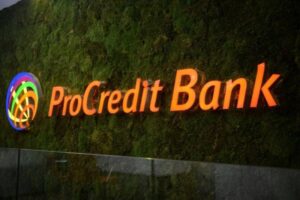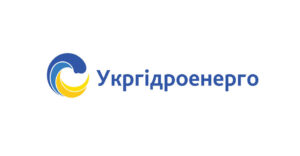
Georgia from January 1, 2026 introduces a mandatory requirement of medical insurance for all foreign citizens crossing the border of the country. This is reported by the National Tourism Administration of Georgia and local media with reference to the updated Law on Tourism.
From this date, foreign tourists must have a medical and accident insurance policy in Georgian or English upon entry. The document must be valid from the moment of crossing the border and cover the entire period of stay in Georgia.
According to explanations of insurance companies and tour operators, the minimum parameters of coverage include payment for emergency outpatient services for at least 5 thousand dollars and inpatient treatment for at least 30 thousand dollars, including risks of accidents, injuries, sudden illnesses, medical evacuation and repatriation. A number of materials also mention the benchmark of the minimum sum insured at the level of GEL 30 thousand equivalent, but in the market for non-residents the benchmark of USD 30 thousand is used as a basic benchmark.
In case of absence of a valid policy, a fine of 300 GEL (about $110) is envisaged, and the border guard at its discretion can either offer to issue insurance on the spot or refuse entry. The new rules apply to all foreign citizens, regardless of citizenship and mode of entry, Georgian and international media emphasize.
Tour operators note that the greatest practical significance of the innovation will be for independent travelers who book flights and accommodation without package tours.

The European Investment Bank (EIB) has approved a project to provide ProCredit Bank (Kyiv) with a partial portfolio guarantee of EUR7 million, which will enable the financial institution to issue up to EUR35 million in loans to micro, small, and medium-sized enterprises (MSMEs).
As stated on the EIB website, the guarantee is part of the EU4Business Guarantee Facility II program, which aims to improve lending conditions for businesses, in particular by reducing collateral requirements and lowering interest rates, thereby expanding access to finance for MSMEs in Ukraine.
As reported, EU4Business Guarantee Facility II is a program under which the EIB provides Ukrainian banks with partial portfolio guarantees to expand lending to MSMEs. Its goal is to simplify access to financing for these enterprises by improving loan conditions. The total volume of the program is estimated at EUR 300 million, of which EUR 40 million is EIB guarantees. The project was approved on May 5, 2025.
ProCredit Bank is part of the ProCredit Holding AG (Germany) banking group, which owns 100% of its shares. According to the National Bank, as of October 1 this year, it ranked 16th (UAH 44.68 billion) among 60 banks in Ukraine in terms of total assets.

The cryptocurrency market remains under pressure in early December 2025 after a sharp decline in November, but has shown signs of stabilization in recent days: Bitcoin (BTC) is trading in the $90,000–92,000 range, remaining approximately 25–30% below its historic October high of over $120,000.
According to CoinMarketCap, the total capitalization of the cryptocurrency market on December 6–8 is about $3 trillion, which is significantly lower than the peak values of the fall, against the backdrop of the “December reckoning” — a continuation of the sell-off that began in November and intensified due to investors exiting spot Bitcoin ETFs and the unwinding of excess leverage.
Ethereum (ETH) is holding above $3,000 – around $3,100 – and looks stronger than Bitcoin in early December: a number of reviews note the local leadership of ETH and some of the major altcoins amid a recovery from November’s decline. Analysts admit the possibility of a move to $3,500–3,900 if the overall improvement in sentiment continues, although they emphasize that this requires maintaining the $3,000 mark as key support.
Among the factors determining the dynamics of December, market participants highlight, on the one hand, expectations of a 25 bp cut in the US Fed rate (probability of about 85-90%), which traditionally supports demand for risky assets, including cryptocurrencies, and, on the other hand, continued pressure from long-term holders who are taking profits and institutional players who are reducing their positions after the record rally of 2025.
The forecast for the end of 2025, according to analysts’ estimates, is cautiously neutral. For Bitcoin, the key range in the short term is considered to be $82,000–100,000: a breakout and consolidation above the psychological level of $100,000 could pave the way for a recovery towards $110,000–120,000, while failure to stay above $86–88 thousand will again increase the risks of a rollback to the lower part of the range.
For Ethereum, the baseline scenario assumes trading in the range of approximately $2.8–3.6 thousand, with possible attempts to break above it if global risk appetite improves.
Experts emphasize that the end of the year will be marked by increased volatility: the market is essentially completing a painful “reset” of excessive leverage and speculative positions. This creates the conditions for more sustainable growth in 2026 based on institutional demand, tokenization of real assets, and further clarification of regulations. However, in the last weeks of 2025, investors should be prepared for sharp intraday price fluctuations, according to analysts.

On December 8, Ukrhydroenergo announced a tender for car insurance for its branches, according to the Prozorro electronic public procurement system.
The expected cost of purchasing insurance services is UAH 4.620 million. The deadline for submitting documents for the tender is December 16.

Ukrainian President Volodymyr Zelensky said that “a weak Russia and a defeated Russia are not beneficial,” so he believes that China is not seeking an end to the Russian-Ukrainian war.
“Of course, China is a strong country with a strong economy, and most importantly in our case, it has influence over Russia, personally over Putin. But with all due respect to the Chinese people, their history, and their culture, we must honestly say that I don’t see how ending this war would benefit China. Why? Because, I think we have read… the new US (security) doctrine… These are two great powers, great economies, and this is a great confrontation. This does not mean that it is a war, it may be any diplomatic or economic confrontation – this is happening. And today, a weak Russia and a defeated Russia in this format is not beneficial to China.
And because of this, honestly, the Ukrainian people are suffering,“ Zelensky said, responding to a question from journalists on WhatsApp on Monday.
Zelensky added that if ”it is not beneficial for China to stop Russia, it means that the war will continue.”
“This does not mean that China directly supports Russia with weapons, but it certainly does not support stopping this war. That is final. Plus, there are various reports from our intelligence services about the supply of machine tools and other items from China to Russia, but I have not been informed of any direct supplies of weapons,” Zelensky said.